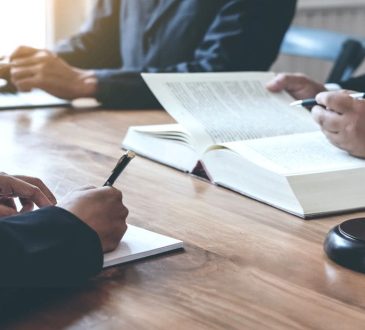
Slip and fall accidents can happen in a split second, but the actions you take immediately afterward can have lasting effects on your recovery and your ability to pursue compensation. Unfortunately, many accident victims make mistakes that weaken their claims — often without realizing it. Knowing what not to do can protect your rights and improve your chances of a fair settlement.
Here’s a guide to the most common slip and fall mistakes and how to avoid them.
1. Failing to Seek Medical Attention
One of the most frequent errors is not seeing a doctor immediately. Even minor falls can result in injuries that don’t appear until hours or days later, such as:
- Concussions
- Hairline fractures
- Internal bruising
- Soft tissue damage
Medical documentation is critical for proving your injuries were caused by the fall. Waiting too long to seek treatment can give insurance companies an excuse to claim your injuries were pre-existing or unrelated.
How to avoid this: Always get checked by a medical professional right after a slip and fall, even if you feel okay. Keep all records and follow-up treatment notes.
2. Not Reporting the Accident
Failing to report the incident to the property owner, manager, or relevant authority is another common mistake. Without an official report, it can be harder to prove the fall actually happened and that the owner knew or should have known about the hazard.
How to avoid this: Immediately report your accident to the property owner, manager, or relevant authority and request a copy of the incident report for your records.
3. Ignoring Evidence at the Scene
The scene of a slip and fall is prime evidence. Many victims fail to take photos or videos, gather witness information, or note environmental conditions such as wet floors, poor lighting, or icy sidewalks.
How to avoid this: Document the hazard thoroughly before it’s cleaned or repaired. Take pictures from multiple angles, capture the surrounding area, and preserve anything that might show the cause of your fall. Collect names and contact information of witnesses who saw what happened.
4. Talking Too Much to Insurance Companies
Insurance adjusters often seem friendly, but their primary goal is to minimize payouts. Many victims make the mistake of giving recorded statements, volunteering unnecessary details, or agreeing to settle too early.
How to avoid this: Politely decline to give a recorded statement until you’ve spoken with a lawyer. Don’t post about your accident on social media, and avoid discussing your injuries with anyone outside your immediate medical and legal team.
5. Waiting Too Long to Take Action
Slip and fall claims are subject to statutes of limitations, meaning there’s a limited time to file a lawsuit. Waiting too long can result in losing your right to compensation.
How to avoid this: Contact a slip and fall attorney as soon as possible. Even if you’re unsure about the severity of your injuries, early consultation ensures deadlines are met and evidence is preserved.
6. Underestimating the Importance of Documentation
Some victims fail to keep detailed records of medical expenses, lost wages, and pain and suffering. Without this information, it’s harder to prove the full extent of your damages and receive adequate compensation.
How to avoid this: Keep a dedicated folder for everything related to your accident, including medical bills, pay stubs for missed work, receipts for transportation to appointments, and notes about how your injuries impact daily life.
7. Attempting to Handle the Case Alone
Many people assume they can navigate a slip and fall claim themselves, only to be overwhelmed by insurance tactics, legal deadlines, and complex liability issues. Representing yourself often leads to mistakes that reduce your potential recovery.
How to avoid this: Hire an experienced slip and fall attorney who understands New Jersey premises liability law, knows how to gather evidence, and can negotiate with insurance companies on your behalf.
8. Ignoring Comparative Negligence Rules
New Jersey follows comparative negligence, meaning your compensation can be reduced if you’re found partially at fault for the accident. Some victims are unaware of this and unknowingly say or do things that could increase their share of responsibility.
How to avoid this: Let your attorney handle all communications and claims submissions. Avoid statements that could be interpreted as admitting fault.
9. Failing to Preserve Physical Evidence
Sometimes, shoes, clothing, or even a broken item in the area of the fall can provide important evidence. Throwing these items away or cleaning them before documentation can weaken your claim.
How to avoid this: Preserve anything connected to the accident. Take photographs, keep the items, and provide them to your attorney if needed.
10. Settling Too Early
Insurance companies often offer quick settlements to close cases cheaply. Many victims accept the first offer, only to later realize it doesn’t cover all medical costs, lost wages, or ongoing pain and suffering.
How to avoid this: Wait until you have fully recovered or reached maximum medical improvement before considering a settlement. An attorney can help determine a fair value for your claim.
How an Attorney Can Help You Avoid These Mistakes
A qualified slip and fall attorney guides you through every step of the process:
- Ensuring timely medical evaluation
- Documenting evidence properly
- Communicating with insurance adjusters
- Calculating the full scope of damages
- Filing claims within legal deadlines
For experienced guidance, contact The Law Offices of Anthony Carbone. Attorney Carbone has more than 35 years of experience helping Jersey City residents navigate slip and fall cases, avoid common pitfalls, and recover fair compensation for their injuries.
Final Thoughts
Slip and fall accidents can be overwhelming, but the mistakes you make afterward often matter more than the accident itself. By acting quickly, documenting thoroughly, seeking medical attention, and consulting an experienced attorney, you can protect your health and your rights while maximizing your potential recovery.



